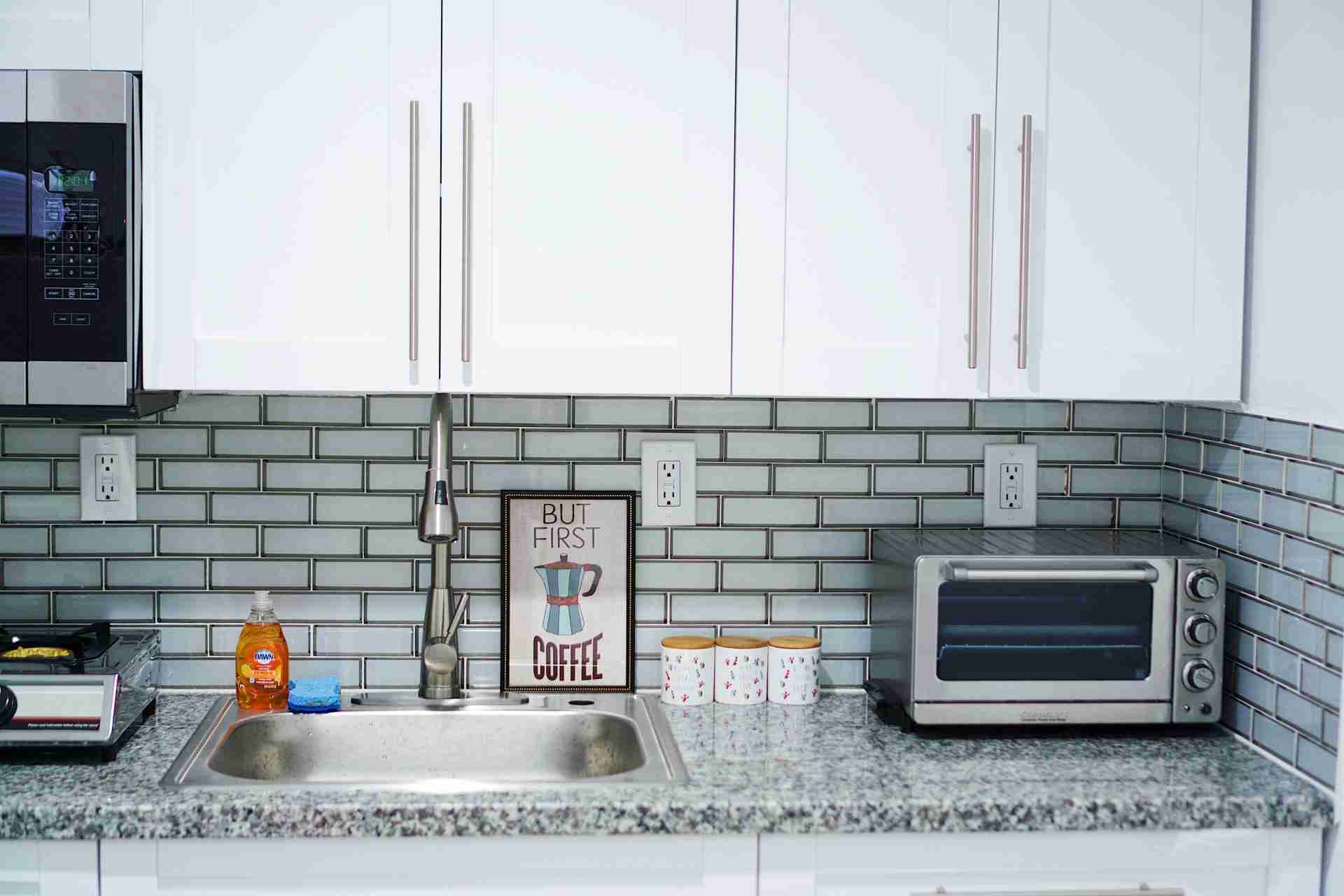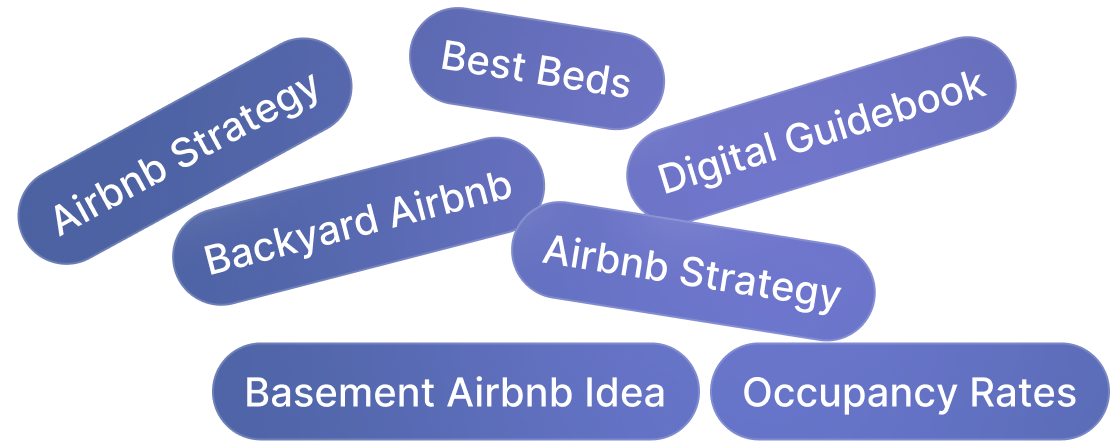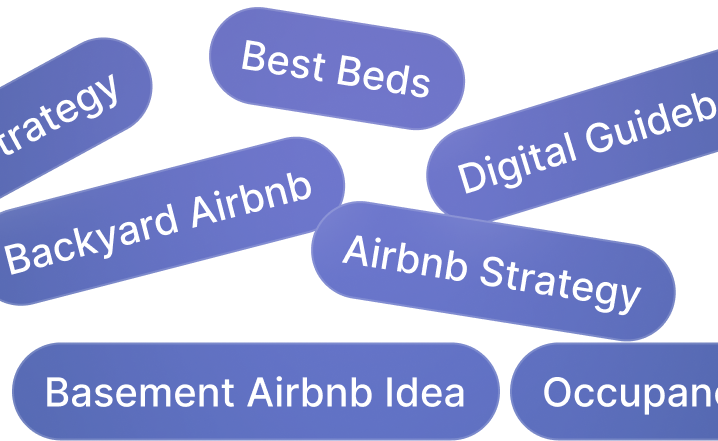Why Consider Airbnb Long Term Rentals?
The covid-19 pandemic has changed the way we work and vacation. With more remote workers than ever, long-term Airbnb rentals have significantly increased. The trend doesn’t appear to be going away anytime soon. With increased employer flexibility, guests are looking for “workcation” spots for long periods of time rather than short trips that could easily be interrupted due to the fast-changing circumstances of the pandemic.
Turning your property into a long-term Airbnb rental can provide you with a stable and predictable income, and require less day-to-day maintenance.
Host Tools provides an automated, unified calendar for short-term rental hosts, allowing you to seamlessly list on all major channels. Start your free trial today!

Pros vs. Cons of Long-Term Airbnb Rentals
Converting your property from a short-term rental to a long-term rental is a substantial change that comes with great rewards and some new challenges. Below we will discuss the benefits and challenges of hosting long-term Airbnb rentals.
Pros:
-
A steady and predictable income: Unlike short-term rentals, your guests are renting your property for an extended period of time. Your income is significantly more predictable than short-term rentals.
-
Cancellation policy: Airbnb’s cancellation policy for long-term rentals greatly favors hosts. A host is entitled to a full refund of the first month’s cost for any cancellation within 30 days or less.
-
Less operational work: With short-term rentals you are frequently bringing in your cleaning crew, setting up welcome baskets, getting guests checked in, marketing your property, etc. With long-term stays, there is less day-to-day operational work for your property.
-
More eyes on your Airbnb: Airbnb launched a “Monthly Stay” category which means your property will show up in more searches.
-
Amenity differences: The short-term rental game is extremely competitive. You may need a hot tub or pool to persuade a guest to book. With long-term rentals, guests are looking for the day-to-day essentials like a washer/dryer or dishwasher. It’s easier to stand out in the long-term Airbnb industry.
Cons:
-
Decreased nightly rate: Monthly stays will require hosts to price their properties at a lower nightly rate than if they were short-term stays. If you normally charge $300 a night, that would become $9,000/month without adjustment. Research the market value for properties in your area of similar quality to find out what typical monthly rent is.
-
Miss out on high-season: During the holidays, summer months, or around special events in your area it’s popular to increase the price with demand. However, when you rent a property monthly at a set rate this becomes impossible.
-
Fewer visits to the unit: While long-term guests free up your day-to-day operational time, it does mean you’re not cleaning or seeing your unit as often as you like. You may need to schedule check-ins or times for deep cleans when guests are out for the day.
-
Screening guests: With long-term rentals, hosts run an increased risk of guests overstaying their welcome and becoming what is commonly known as a squatter. Also known as someone who claims adverse possession, these are folks who have been in your property for over 30 days and are not paying rent. To protect yourself from a legal mess screen your guests using the following tools:
-
Create a written lease agreement
-
Ask your guests questions before accepting the booking. Ex: Why are they staying here? Who will be at the property? etc.
-
Check their social media accounts. Serial squatters tend not to have a digital presence.
-
Use smart locks to automatically change entry codes when a guests stay is complete
There is a fine line between short-term and long-term Airbnb rentals. Hosts can view it as a bit of a sliding scale between finding the possibility of a maximum profit from high daily rates, or the peace of mind that your property is securely booked for months at a time.

Long Term Rentals and Travel Nurses
Many long-term Airbnb guests are travel nurses and medical professionals. Travel nurses are people who travel around the country for work and need a furnished place to stay. They have a reliable income and an average of 13-week contracts that makes Airbnb rentals more appealing to them than a full-year lease.
Consider rewording your listing to attract travel nurses. Use phrases in your listing like “close to hospital”, “discounted rates for medical staff”, “blackout curtains” etc. Think about making your property pet-friendly as many nurses take their furry friends wherever they go.
You may wish to advertise your property with discounted rates for a longer stay. For example, 1-90 day bookings receive a standard rate, 3-6 month bookings a lower rate, 6-9 months even lower, etc. This can persuade guests to book longer and provide you with an even more steady income.
Other medical professionals and hospital staff may be looking for housing during this time to prevent covid-19 exposure to their family at home. While you are earning an income, you’re also supporting your local community by providing safe and affordable housing to essential workers.
Long-term Airbnb renting is a trend that is here to stay. While it comes with its own set of challenges, the benefits of a stable and predictable income and fewer day-to-day operational tasks work in your favor. Consider marketing your property to travel nurses and enjoy the peace of mind that comes with a long-term Airbnb monthly rent.
Host Tools provides an automated, unified calendar for short-term rental hosts, allowing you to seamlessly list on all major channels. Start your free trial today!


